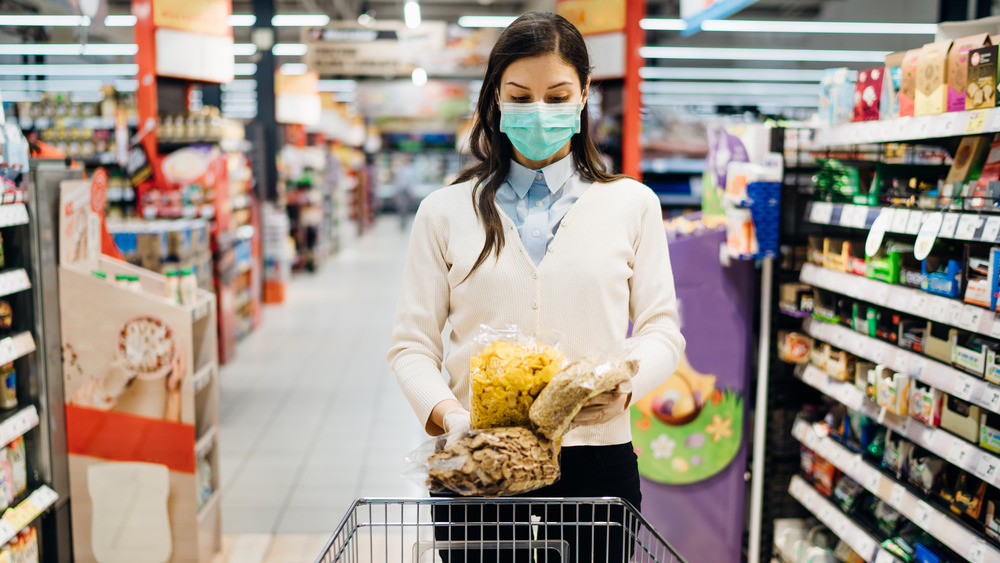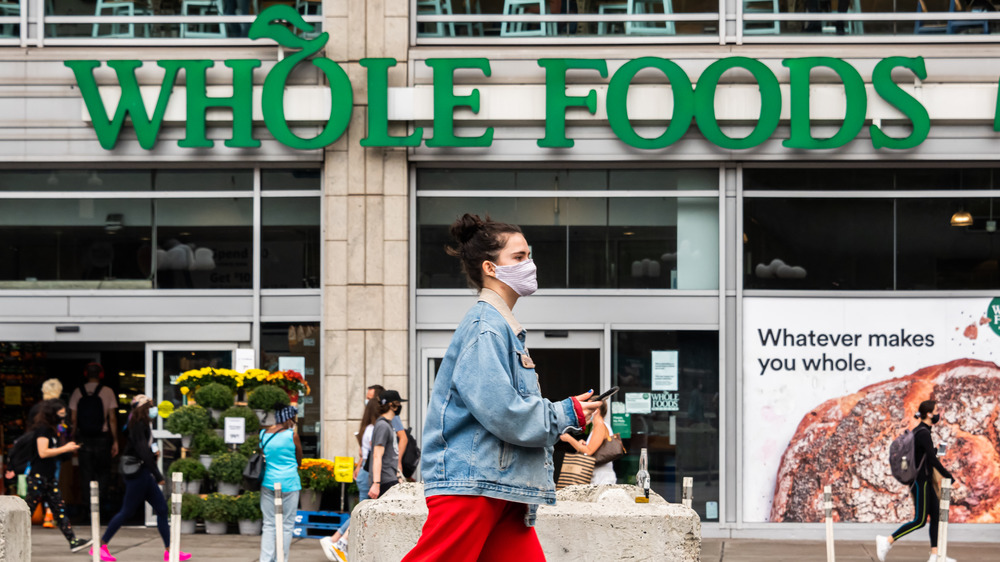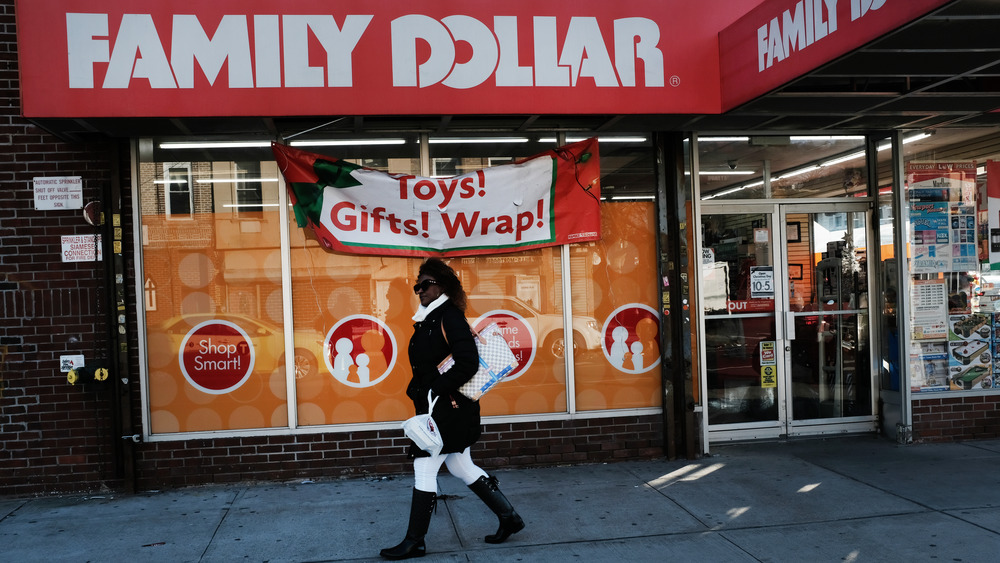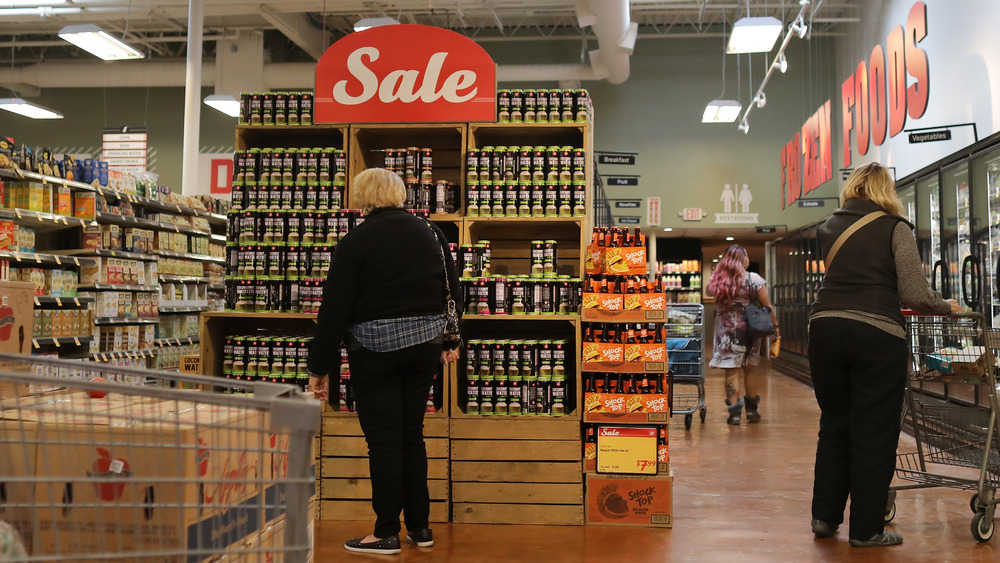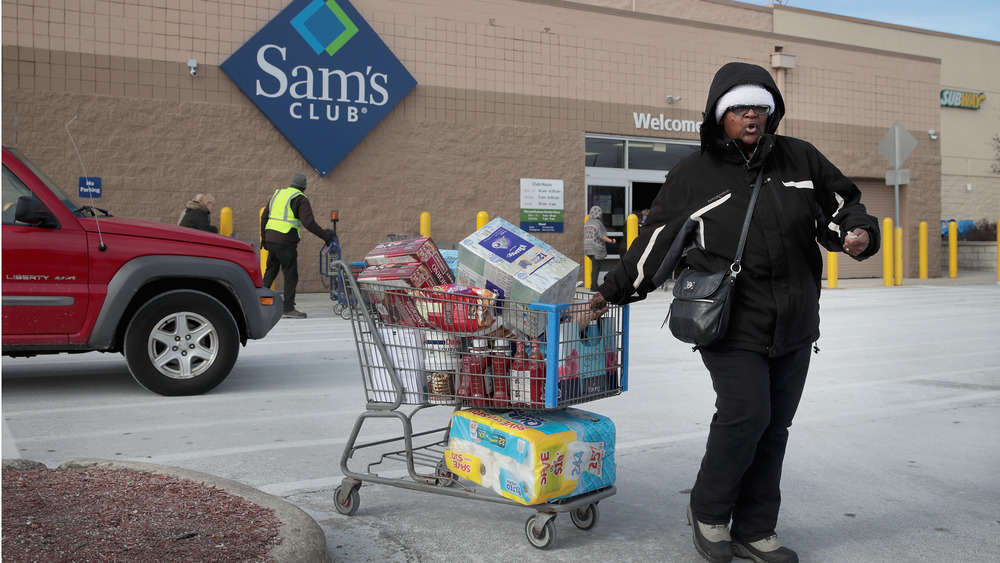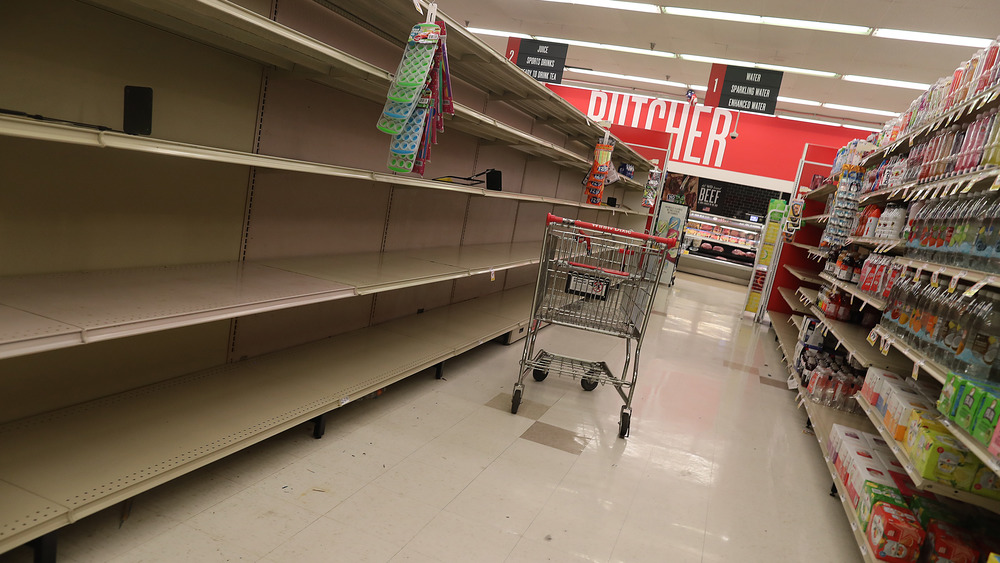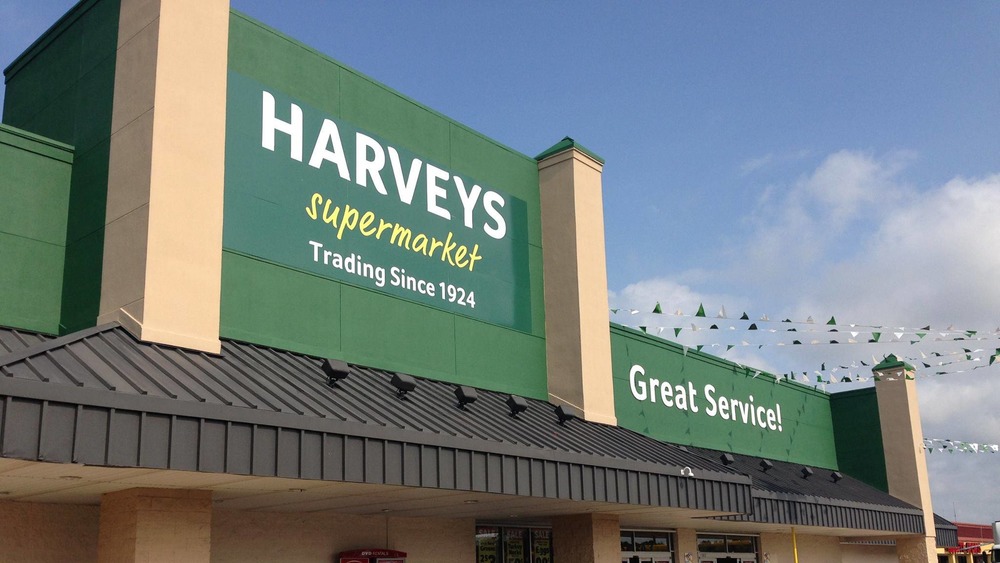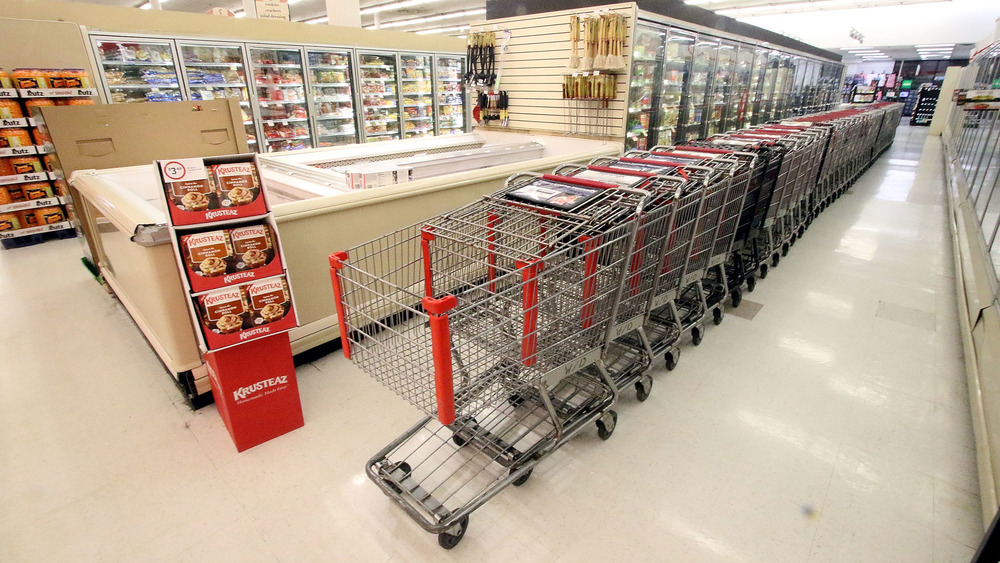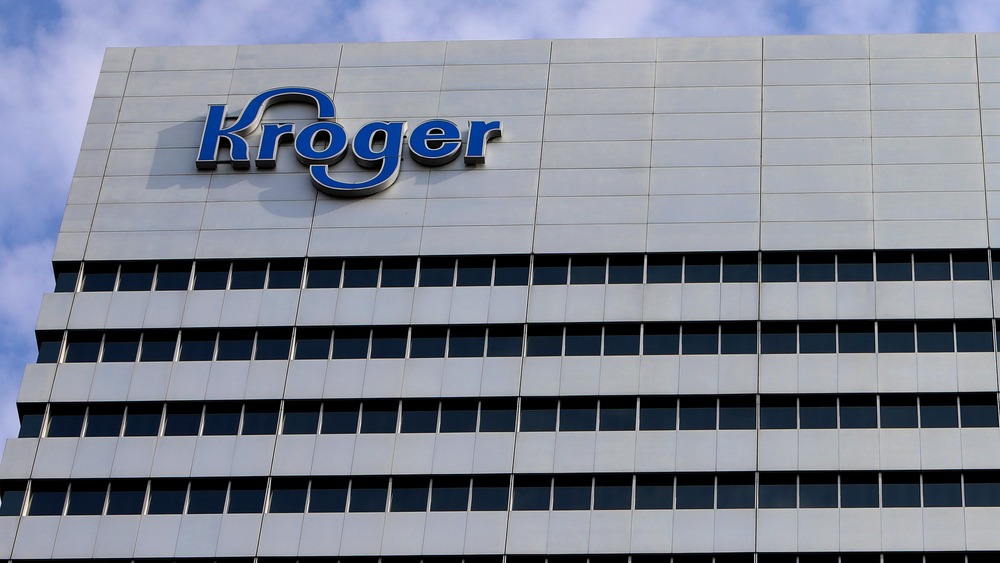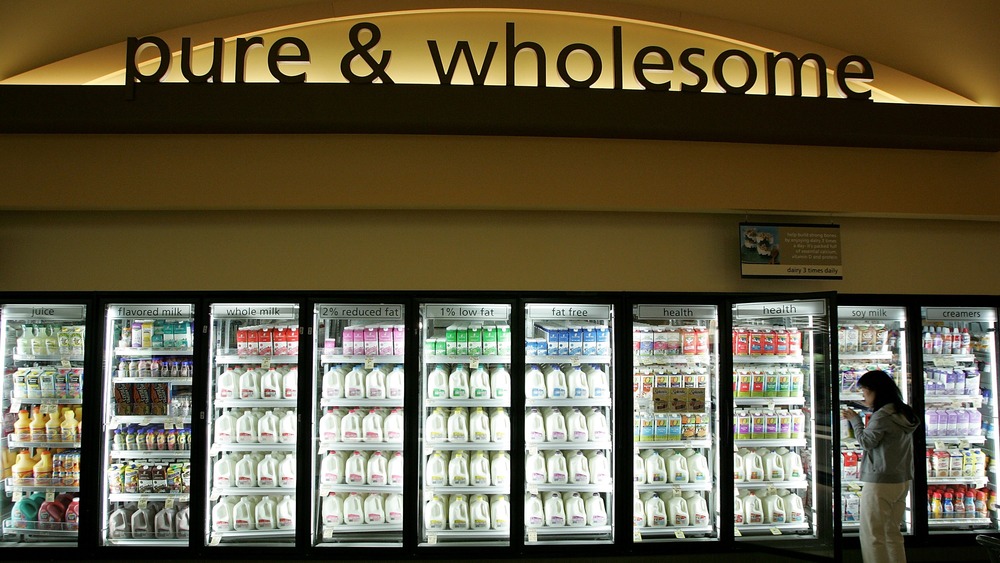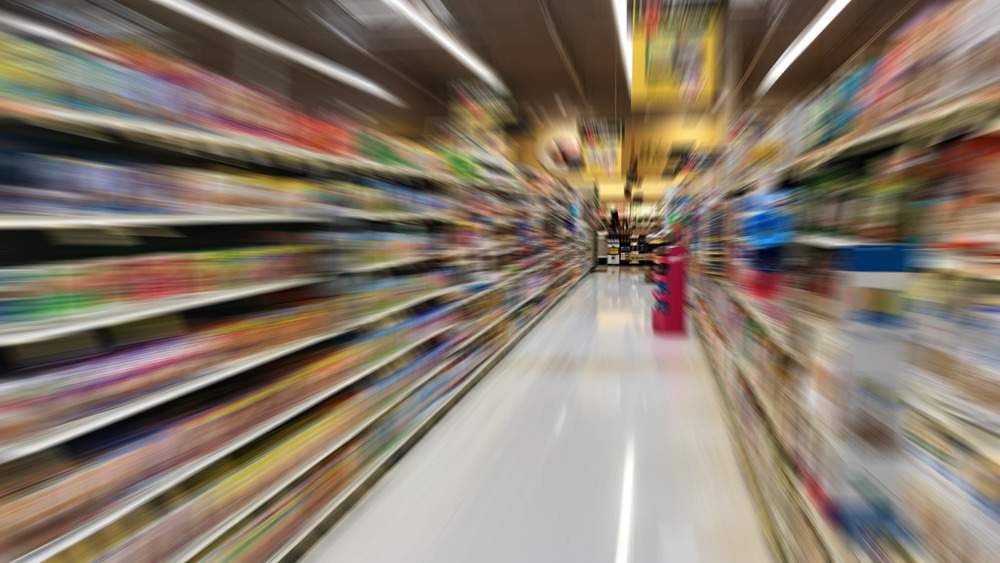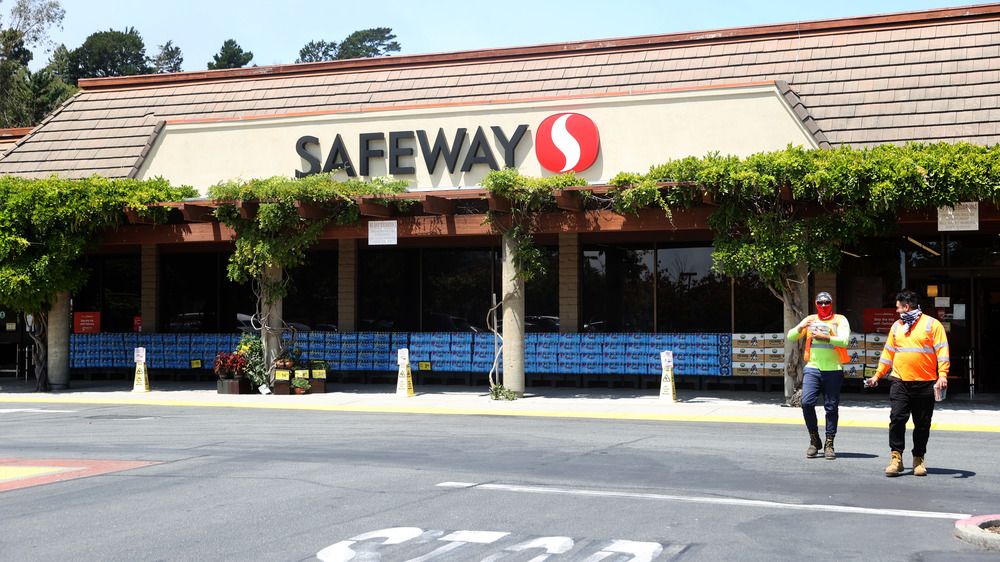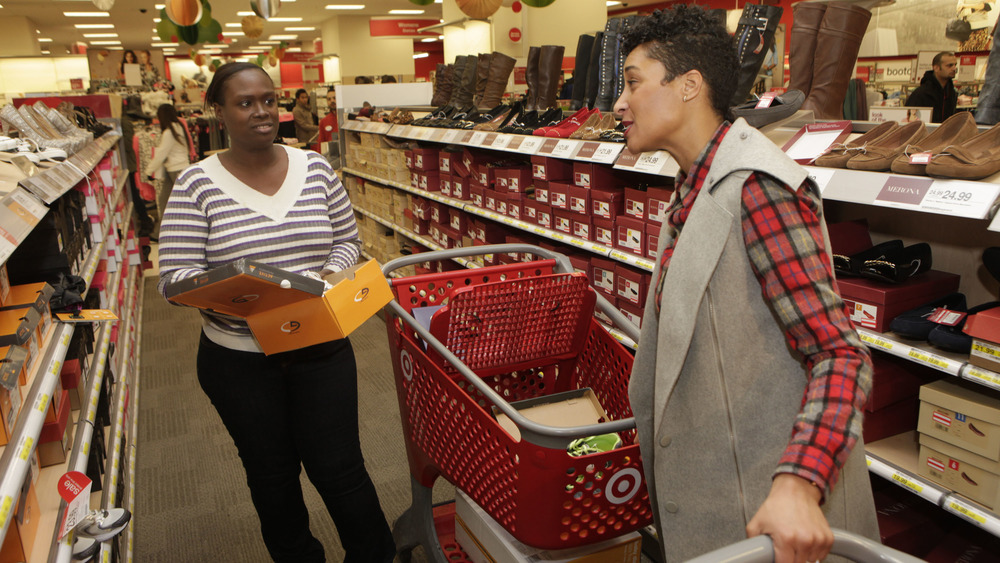Grocery Stores That Might Not Survive 2021
Retailers across the globe are facing massive declines in sales due to the 2020 economic downturn. Many grocers, on the other hand, have thrived in the stay-at-home pandemic while others are facing closures to balance out the books. NBC reports the U.S. grocery sector revenue has risen by as much as ten percent year over year in 2020, according to a consulting firm. That rate may shrink to two to five percent next year if restaurants open back up and a COVID-19 vaccine allows people to emerge from their homes. Experts predict the profits could even drop by as much as seven percentage points in early 2021. As more people cook at home as a result of budget or safety concerns, grocery stores are more important now than ever.
In North America, Forbes reports around $125 billion in retail sales have shifted from general merchandise retailers such as department stores, apparel, and other hard goods to grocery, warehouse clubs, and online options. Translation: We've all relied heavily on Amazon Prime and Instacart. Closed stores have also contributed to unemployment across the retail sector. Grocers are still not out of the woods thanks to what looks like another turbulent winter season. Not all are expected to fare well. Here are the grocery stores that may not survive the next year.
Whole Foods
Whole Foods, the grocery store formerly known as the luxury grocery shopping spot with the upbeat, hip staff, is now a shell of its former self. Parent company Amazon is known for its race-to-the-bottom prices and data-driven business decisions. Whole Foods CEO John Mackey told The Wall Street Journal that he also predicts the demise of the grocery store as we know it — but for different reasons.
The pandemic accelerated the online grocery shopping trend, a move the brand has wholeheartedly embraced thanks to its parent company. Shopping online looks to be more than a trend, but the CEO pointed to the pandemic being one of the main reasons for traditional stores seeing an added drain. Added costs for store owners include providing masks, temperature checks, and disinfecting to keep both employees and customers safe.
NBC 5 Chicago reported that Whole Foods closed one of its Chicago locations in Lincoln Park with the directive to continue online food sales instead. The local news outlet found one spokesperson who said that as the grocery store faced the challenges associated with COVID-19, the retailer will be looking for new ways to meet demands for online grocery shopping to reach more customers. Whole Foods could face more closures if online shopping continues to put strain on the stores. Shoppers will need to stay tuned to see what 2021 brings for the beloved grocer.
Family Dollar
Family Dollar is a discount grocery store retailer found all over North America. At least, it used to be. In 2019, CNBC reported the Dollar Tree closed up to 390 of its Family Dollar locations. As part of the massive transition, the company moved to open, close, and relocate hundreds of its stores in order to stay afloat. In just one quarter, the company lost $2.31 billion compared to a profit of about half that amount the year previous. Essentially, the grocer took a huge turn for the worse.
The news outlet found that same year the company owned a staggering 7,001 Dollar Tree and 8,236 Family Dollar stores across the U.S. and Canada. The brand also planned to renovate another 1,000 locations after its losses. Upgrades included around 400 stores receiving larger freezer and cooler sections, as well as certain stores selling alcohol. The parent company also rebranded another 200 stores from the Family Dollar name to Dollar Tree.
Family Dollar received more bad news when a Family Dollar employee in Corinth, Maine, closed the store claiming poor treatment. The now-former employee put up a pink sign reading, "We quit! Bad company to work for," to the surprise of both customers and the company. Discount stores continue to be popular, especially during economic downturns when people are low on cash or facing unemployment. RIS News found even though Dollar Tree expects to slow down its store openings, 2020 earnings have been higher than expected.
Lucky's Market
You might not be familiar with Lucky's Market unless you live in Florida or Colorado. The popular store started in Boulder, Colorado, as a mid-priced boutique grocer. The chain grocery store shuttered 20 out of 21 stores across the Sunshine State in 2020, according to the South Florida Sun Sentinel. Supermarket giant Kroger decided to pull out as an investor, adding uncertainty for Lucky's expansion into Florida. Kroger doesn't have any locations in Florida and saw the store known for its reusable bags, generous samples, and "sip 'n stroll" policies as a way to break in.
Publix plans to buy five leases from the former Lucky's Market in Florida locations, including at Clermont, Naples, Neptune Beach, Orlando, and Ormond Beach. The specialty grocer also filed for Chapter 11 bankruptcy protection in Delaware. An additional six stores could be sold to another popular discount grocer, Aldi, making sure communities aren't at a complete loss. Kroger let go of 32 of the 39 Lucky's locations and laid off the employees in the process.
Social media devotees left comments lamenting the loss of Lucky's Market and the best bacon in town. The sale resulted in going-out-of-business liquidation sales, which might have been a temporary salve for locals looking for discounts. Speculation is still rampant over what will replace the specialty grocery stores. Fortunately, if Florida shoppers are still looking to shop and sip craft beers, Publix opened a GreenWise Market in Boca Raton to fill the void.
Sam's Club
Shutdowns caused by COVID-19 outbreaks and fear of protests have become the norm in 2020. Granted, grocery stores such as Sam's Club temporarily shutting its doors is only a minor inconvenience in these cases. The Walmart-owned membership warehouse, however, needs to be even more strategic due to its spotty history. In 2018, Sam's Club closed 63 of its stores without warning — especially for its employees who were suddenly out of a job. Media outlets found out about the closures from employees who were left out on the street. Even worse, corporate spokespersons stayed quiet about the whole process. And we thought 2020 was rocky.
Sam's Club has experienced turbulence well before the abrupt closures. The membership retailer started having trouble back in 2015 when revenue fell flat. Ironically, the megastore known for using loss leaders (also known as purposely losing money to snuff out the competition) built its business model to appeal to small business owners. The model assumed small businesses would shop at the warehouse to stock their stores.
Instead, most entrepreneurs paid for memberships to shop for bargains only for personal use. In an attempt to save its remaining stores, Sam's Club has made major overhauls to its business model in the following years. Yahoo Finance reports curbside pick-up for all members, instead of only premium cardholders, is one move to stay relevant in the wake of the pandemic. Sam's Club still operates around 600 stores across 44 states in the U.S. and Puerto Rico.
BI-LO
BI-LO used to be a mainstay grocer for South Carolina shoppers. Founded in Greenville, Coupons in the News found the privately owned company merged into Southeastern Grocers (SEG) after emerging from bankruptcy. It went on to buy additional Winn-Dixie and Harvey's grocery stores. The company again went bankrupt in 2018, resulting in nearly 100 stores closing. Soon, BI-LO stopped being favored among its sibling chains. The grocer didn't have the scale of the Southern mainstay Winn-Dixie or the targeted appeal of Southeastern Grocer's newest brand Fresco y Más.
In the summer of 2020, the company sold almost half of the 100-store chain. Greenville Business Review announced that the chain would sell 62 stores by handing over 46 BI-LO and 16 Harveys Supermarkets stores to its competitor Food Lion. Then, on September 1, 2020, Southeastern Grocers announced it would let go of another 23 grocery stores. Food Lion even acquired the BI-LO distribution center in South Carolina.
BI-LO looks to finally meet its end after surviving two bankruptcies and six decades. As of the announcement in 2020, the umbrella company of SEG still operates 550 grocery stores under the Winn-Dixie, Harveys, and Fresco y Más banners. Shoppers will still find stores in the southeast, including Alabama, Florida, Georgia, Louisiana, Mississippi, North Carolina, and South Carolina.
Harvey's Supermarket
Grocery store conglomerate Southeastern Grocers is unloading multiple brands as we head into 2021. Supermarket News found SEG operates 550 grocery stores in Alabama, Florida, Georgia, Louisiana, Mississippi, North Carolina, and South Carolina. It's umbrella company owns Winn-Dixie, BI-LO, Harveys, and the Fresco y Más brands.
Harvey's Supermarket is on the chopping block with SEG unloading 30 stores in Florida, Georgia, and the Carolinas. Food Lion said the store banner conversion is slated to be made over a staggered period that is expected to complete in April 2021. With the transfer, the Food Lion parent company will have nearly 700 stores in the Carolinas and Georgia. Food Lion brands can also be found in the Mid-Atlantic, Northeast, and New England regions with more than 77,000 employees.
Local station Fox 31 News reported at least 16 of the Harvey's stores will be rebranded in Southwest Georgia. On a positive note, Food Lion plans to hire around 4,650 associates to serve customers at its 62 new stores. Georgia shoppers will be left with 28 Harvey's locations in the state. Food Lion representative also encouraged the laid-off employees to reapply to any of the Food Lion locations. A "gee thanks" might be in order while adding to the retail carnage of 2020.
Winn-Dixie
Southeastern Grocers is once again reducing its footprint, closing multiple grocery stores and laying off employees. The company started in 1961 as BI-LO in Greenville, South Carolina — the now defunct grocery store brand. Last year, WJCT announced SEG went through a prepackaged Chapter 11 bankruptcy, resulting in a reorganization of its multiple brands that reduced its debt by half. Seven Winn-Dixie stores planned to close as a result.
As part of the bankruptcy, Southeastern Grocers closed almost 100 stores and sold other beloved, and some forgotten, brands. Winn-Dixie is one of the popular brands that's seen turbulent times. Before being acquired by Southeastern Grocers, the grocery store synonymous with the Southeast also went through two bankruptcy reorganizations to save the brand.
The Tampa Bay Times reported the SEG umbrella still faced the pandemic half-way through its five-year restructuring plan. Shoppers may see more changes as a result since the company has shredded unprofitable locations, bought stores, and expanded its digital footprint.
Kroger
Kroger is the nation's largest grocery store chain. Kroger is also one of the largest grocery chains in the Indianapolis area. The Indy Star found the 66-year-old store in Broad Ripple faced competition from an upscale market, seasonal farmer's market, and a health food store. The mega brand decided to close the strained store in the Broad Ripple neighborhood. Kroger closing means fewer options for community shoppers.
Kroger is also closing another store in Springfield, Ohio. The Cincinnati Business Courier reported one Greater Cincinnati Kroger store will close, as will another Kroger store near Dayton. The partner station in Dayton found that this is the third location in the Springfield area to close in recent years. Springfield's mayor issued a statement speaking out against the closure instead of choosing to improve the store. Closures and layoffs aren't unusual for the widespread grocer. In 2019, the Knox News found Kroger cut hundreds of local management jobs nationwide.
Like many retailers adapting to a new economy, the brand plans to focus more on technology and infrastructure in its existing stores.
Shoppers
Shoppers Grocers is a Providence, Rhode Island-based grocery chain that has closed many of its doors in recent years. Washington Business Journal found devotees of the grocery brand might have a year to 18 months before the merger and sale of 24 remaining properties. Shoppers' parent company, United Natural Foods, started to sell or close most of its stores in an effort to get out of the retail business for good. Popular German discount grocer Lidl purchased many of the Shoppers' locations that were available via the liquidation sale. Only 14 Shoppers stores remain in Washington and the Baltimore region. Additional Shoppers stores operate in Virginia.
Grocery Dive reported the CEO announced a halt on additional sales of the locations due to stay-at-home orders and spike in grocery sales for frugal shoppers. So, what does that mean for shoppers? The limited stores could stay open through 2021 if the pandemic trends stick around and continues to boost sales. Do we really want a grocery store boom as a result of a pandemic? At least there's a demand for retailers and plenty of fresh options for communities in need.
Albertsons
Retailers across the country are taking a bit hit during the economic downturn. Shops are shutting their doors, and layoffs are becoming commonplace. Sales for (most) grocers are looking up due to restaurants closing and forcing more people to cook at home. Forbes reported that Albertsons is the only grocery store that gets a very high risk of default by RapidRatings's financial health ratings.
At the start of 2020, the New York Post reported that the widespread supermarket hit a few bumps when it announced it wouldn't be able to cover pension plans as soon as 2021. This announcement — and potential legal action if it doesn't meet its financial commitments — came right as the grocer wanted to go public. As a parent company to Safeway, Shaw's, and Acme chains, Albertsons wouldn't be able to meet around $565 million in group pension plans, covering around 50,000 supermarket workers in the Washington, D.C., area.
Grocery stores are certainly making lemonade out of the lemons of the pandemic. Business is booming — for now. Like many grocers, Supermarket News found Albertsons is being forced to cater to an online audience and innovate with curbside offerings. Buy-online, pickup-in-store, and curbside pickup are also services retailers in all industries will need to offer in order to prosper in the new normal. Making sure you can pay your bills also seems like a great idea for any business.
Safeway
Safeway is a major U.S. grocer with 897 locations nationwide. The first Safeway store opened in 1915 in a small Idaho town as a family-run business. Now Albertsons operates Safeway and other brands as part of one of the largest food and drug retailers in the country. Despite its massive size, Forbes reports Albertsons is the only grocery store that gets a very high risk of default by RapidRatings's 2020 financial health ratings. Inner turmoil, such as not being able to pay retirement accounts for its employees, might come as a bit of a shock for such name-brand operation.
In Tacoma, locals also responded in shock to two of the city's Safeway stores shutting its doors. The Tacoma Daily Index reported two stores out of the nine locations in Tacoma are closing soon. The Safeways are situated not very far from one another. Locals are already speculating what will take its place. The state of Washington is home to 18 Safeway stores in Seattle and another eight in Spokane.
Target
Target enjoys somewhat of a cult following in the U.S. but has seen better days down under. Yahoo! Finance reports that Target Australia will be restructured as Kmarts across the country. Parent company Wesfarmers found the current model "unsustainable." Through 2021, between ten and 25 "large format" Target stores and 50 Target Country stores will be closed indefinitely. An additional ten to 40 large Target stores and 52 Target Country stores will be converted into Kmart.
In case you're wondering how the impulse-buying haven called Target fail so miserably in Australia, Target Australia is actually a separate company despite twinning with the name and logo. The two also share the slogan, "buy more, pay less." Despite the likeness, The Daily Mail revealed upwards of 167 stores could close. Wesfarmers also owns Kmart, another familiar yet different Australian brand. The Target closures are expected to result in up to 1,300 jobs lost through 2021. The rebrand, on the other hand, might help revive sluggish sales.
